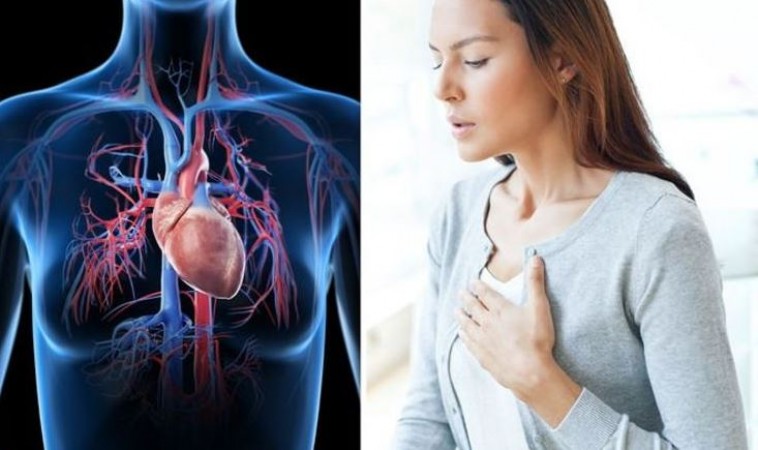
In the realm of medical emergencies, the terms "heart attack" and "panic attack" are often used interchangeably by the general public, leading to confusion and misconceptions. While both conditions can provoke distressing symptoms, they are distinct in their causes, symptoms, and potential consequences. This article aims to elucidate the differences between heart attacks and panic attacks, shedding light on their distinct characteristics and providing a clear understanding of their relative dangers.
Heart Attacks: The Silent Threat
A heart attack, medically known as a myocardial infarction, occurs when there is a sudden blockage of blood flow to a portion of the heart muscle. This blockage is typically caused by the formation of a blood clot within a coronary artery, which supplies oxygen-rich blood to the heart. The lack of blood flow can lead to damage or death of the heart muscle tissue.
Causes and Risk Factors of Heart Attacks
The primary cause of heart attacks is the accumulation of fatty deposits, known as plaques, within the coronary arteries. Over time, these plaques can rupture, triggering the formation of blood clots that obstruct blood flow. Several risk factors contribute to the development of these plaques, including:
Smoking: Tobacco use increases the risk of plaque buildup and narrows the arteries.
High Blood Pressure: Elevated blood pressure can damage the arterial walls, promoting plaque formation.
High Cholesterol: Elevated levels of LDL cholesterol (often referred to as "bad" cholesterol) contribute to plaque buildup.
Diabetes: Diabetes can damage blood vessels, increasing the risk of plaque development.
Obesity: Excess weight strains the cardiovascular system and promotes the development of risk factors.
Family History: A history of heart disease in the family can increase an individual's susceptibility.
Lack of Physical Activity: Sedentary lifestyles contribute to various risk factors for heart disease.
Stress: Chronic stress can indirectly affect heart health through its impact on other risk factors.
Symptoms of Heart Attacks
Heart attack symptoms can vary, but common indicators include:
Chest Pain or Discomfort: Often described as pressure, tightness, or aching in the chest.
Radiating Pain: Pain may extend to the arms (usually the left arm), neck, jaw, back, or stomach.
Shortness of Breath: Difficulty breathing or feeling winded even at rest.
Cold Sweat: Profuse sweating, often accompanied by nausea.
Dizziness or Lightheadedness: Feeling faint or dizzy.
Nausea or Vomiting: May occur, especially in women.
Panic Attacks: The Mind's Turmoil
A panic attack, on the other hand, is a sudden and intense episode of fear and distress, typically lasting for a few minutes. While panic attacks are emotionally overwhelming, they are not life-threatening in themselves.
Causes and Triggers of Panic Attacks
The exact cause of panic attacks is not fully understood, but they are thought to result from a combination of genetic predisposition, brain chemistry, and environmental stressors. Certain triggers can provoke panic attacks in susceptible individuals, including:
Stressful Events: Traumatic experiences, major life changes, or chronic stress can contribute.
Phobias: Specific phobias, such as fear of enclosed spaces (claustrophobia) or public speaking, can trigger attacks.
Medical Conditions: Conditions like hyperthyroidism or certain cardiac conditions can mimic panic attack symptoms.
Substance Abuse: Excessive alcohol or drug use, including caffeine, can trigger or worsen panic attacks.
Symptoms of Panic Attacks
Panic attacks are characterized by a sudden onset of intense fear and discomfort. Common symptoms include:
Rapid Heartbeat: Palpitations or a pounding heart.
Sweating: Profuse sweating, often accompanied by cold, clammy hands.
Shaking or Trembling: Uncontrolled shaking or trembling.
Shortness of Breath: Feeling breathless or a sensation of choking.
Chest Pain: Sharp or dull chest pain, often mistaken for a heart attack.
Dizziness: Feeling lightheaded or dizzy.
Nausea: Upset stomach or feeling queasy.
Fear of Losing Control: A strong sense of impending doom or loss of control.
Comparing the Dangers
When comparing heart attacks and panic attacks, it's crucial to understand that the two are fundamentally different in their nature and consequences.
Heart Attack Danger
Heart attacks pose a significant danger to one's health and can be life-threatening if not promptly treated. The blockage of blood flow to the heart muscle can lead to irreversible damage or even death of heart tissue. Swift medical intervention, often involving procedures like angioplasty or stent placement, is essential to restore blood flow and minimize damage. Delayed treatment can result in severe complications, such as heart failure or irregular heart rhythms.
Panic Attack Danger
Panic attacks, while emotionally distressing, are not physically life-threatening. However, they can impact an individual's quality of life and contribute to the development of anxiety disorders or other mental health conditions. Repeated panic attacks may lead to avoidance behaviors, where individuals avoid situations or places they associate with panic attacks, further limiting their daily activities and experiences.
In summary, heart attacks and panic attacks are distinct medical conditions with different causes, symptoms, and potential consequences. Heart attacks are a result of blocked blood flow to the heart muscle due to plaque buildup, and they require urgent medical attention. Panic attacks, on the other hand, are sudden episodes of intense fear and discomfort, originating from emotional and psychological factors, and are not physically life-threatening. It is essential to recognize the differences between these two conditions to ensure appropriate responses in case of an emergency. If someone experiences symptoms that resemble a heart attack, such as chest pain, it is crucial to seek immediate medical attention. Conversely, individuals experiencing panic attacks should focus on managing their emotional distress and seeking support from mental health professionals to prevent the development of anxiety-related conditions.
Ultimately, both heart health and mental well-being are essential components of overall health. By understanding the characteristics of heart attacks and panic attacks, we can take proactive steps to maintain a healthy lifestyle and seek appropriate care when needed.
The Mighty Potato: A Powerhouse of Health Benefits